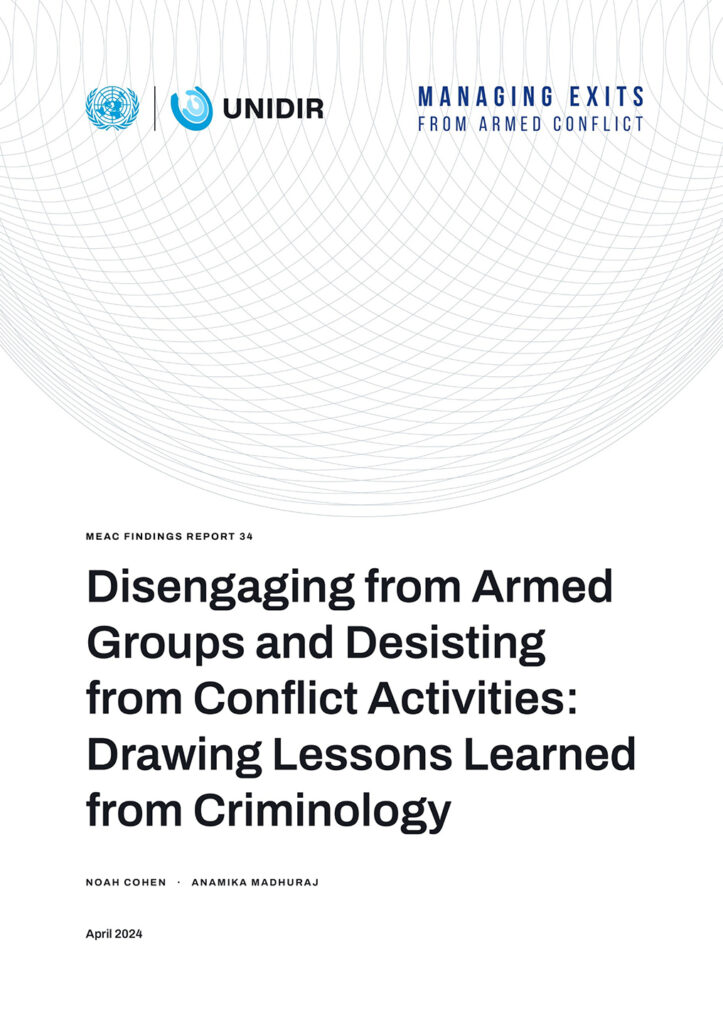This report seeks to glean insights from the existing body of research on individual disengagement from criminal organizations and eventual desistance from criminal activities in order to inform the study of individuals exiting armed groups and ceasing participation in conflict violence. Given the many similarities in recruitment tactics, internal group dynamics, and the psychological aspect of disengagement across both types of groups, the extensive body of criminology literature offers a useful lens for the processes of exiting armed groups.
The report highlights that journeys out of both types of groups are gradual and complex, influenced by a range of factors, including upbringing, parental involvement, coercion, socio-economic grievances, aspirations of belonging, and other societal and environmental factors. The literature examined also reveals the significant psychological impacts of group membership, such as the normalization of violence, which can impact desistance. Regardless of how non-state groups are characterized, evidence points to the value of tailored interventions that address intergroup dynamics, adopt a multi-faceted approach to support that includes community engagement, and are sensitive to cultural and gender-specific needs.
Citation: Noah Cohen and Anamika Madhuraj, “Disengaging from Armed Groups and Desisting from Conflict Activities: Drawing Lessons Learned from Criminology” Findings Report 34, UNIDIR, Geneva, 2024, https://doi.org/10.37559/MEAC/24/01
